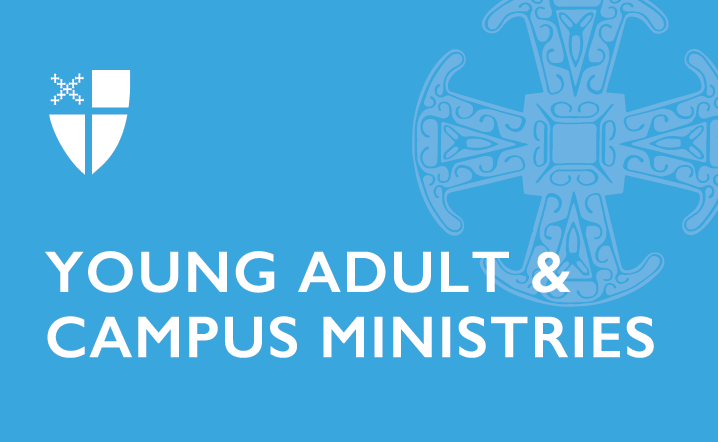A Church Called to Action: Rebecca Ogus, Diocese of Ohio
The United Nations Commission on the Status of Women (CSW) is held annually at UN in New York City. Of the 193 UN member states, 45 send representatives to the CSW, on the basis of geographical location. Each year the CSW has a theme; this year the theme was, “The empowerment of rural women and their role in poverty and hunger eradication, development and current challenges.”
As one of the Episcopal Young Adult (EYA) Delegates at the CSW, I had access to most of the events hosted by Non-Governmental Organizations (NGOs), many of which centered on the theme of empowering rural women. I attended events ranging from the use of Theatre of the Oppressed (in which a scene, usually based on a true story, is acted in front of the audience and the audience is asked to participate in the scene and change parts of the story, challenging the audience to find new ways to change their realities) to identify and combat how multiple oppressions (for example, race, gender, or class) impact rural women; a panel Q&A with Liberian activist and Nobel Peace Prize winner Leymah Gbowee on, among other things, the importance of mentorship between women and girls, religion as a stumbling block for girls’ education, and the mobilization and radicalization of churches to fight for peace and women’s rights; impacts of sex trafficking on Native American populations in Minnesota; and a panel discussion on Hip Hop and Diplomacy put on by the US Mission to the UN.
As Episcopal Young Adult Delegates, we were also a part of Ecumenical Women, which brought together the various Christian groups (mostly Presbyterians, Methodists, Lutherans, and members of the Anglican Women’s Empowerment, or AWE) that had sent members to the CSW. Each morning there was a chapel service in the UN Church center, led by a different group. The EYA Delegates led a service along with the other young adults that were part of Ecumenical Women.
The EYA Delegates also had the chance to spend time at 815, the Episcopal Church Center in New York, right around the corner from the UN Church Center and the UN. There we interacted more intimately with various members of AWE and had the chance to see the many kinds of social justice work the Episcopal Church is engaged in. We met with Chief Operating Officer Bishop Stacy Sauls; the Rev. Margaret Rose, the Episcopal Church Deputy for Ecumenical and Interfaith Collaboration; the Rev. Canon Charles Robertson, the Canon to the Ordinary of the Presiding Bishop; and participated in the Words Matter Project.
I’ve come away from the CSW with a sense of hope. It can be so easy, sometimes, to despair. There are awful, horrible things happening in the US and globally, and often they seem too vast to even begin to combat. But meeting women who are working to stop war, hunger, violence, environmental degradation, and all kinds of oppression domestically and abroad, and seeing their strength, their dedication, their passion – it gives me confidence. People are creating change in their communities and connecting with each other to share their stories and work together across borders, they are making a difference.
The Episcopal Church is one of the many groups tackling these problems. I went into the CSW with the knowledge that, sure, the Episcopal Church is dedicated to social justice. But I didn’t really know the extent to which that was true. At 815 I witnessed the many, diverse ministries of the Episcopal Church – from Domestic Poverty/Jubilee to Global Justice to Ecumenical/Interreligious to Eco-Justice ministries – and met people engaged in them. It’s empowering to know that my spiritual community is not only dedicated to ending oppression, they’re out there working to do so right now.
However, there is still work to be done, especially within the Episcopal Church. I’m lucky – I’ve been welcomed and given responsibility in my church, mentored by older community members who have taught me so much, supported in my endeavors, including attending the CSW. But not everyone is. One of the most common sentiments I heard in our delegation (this was not the case for everyone, but it was an issue that was raised many times) was that as young adults, we could not find our position in the Church. There is a desire for community, for some kind of spiritual connection, but young adults are having a hard time finding it.
As the world changes, the way we structure the Church must change. Young adults have to be involved, since it’s our generation that will be sustaining the Church as time passes. Unless young adults are accepted into decision-making bodies on local, diocesan, and Church-wide levels to contribute their situated opinions and knowledge, and to learn from and be mentored by older members, the Episcopal Church will sit stagnant. We are in a position to enact the social justice work that, as a Church, we are committed and compelled to do. But we must make these connections and build these relationships to do so.
Thank you to all of the people who made this experience possible for me: Bishop Daniel, the Diocese of East Carolina, and the Episcopal Church Women of the Diocese of East Carolina; Bishop Hollingsworth, the Diocese of Ohio, the Rev. Helen Svoboda-Barber, Greg Stark, and Harcourt Parish!
Filed under: UNCSW, Young Adults

